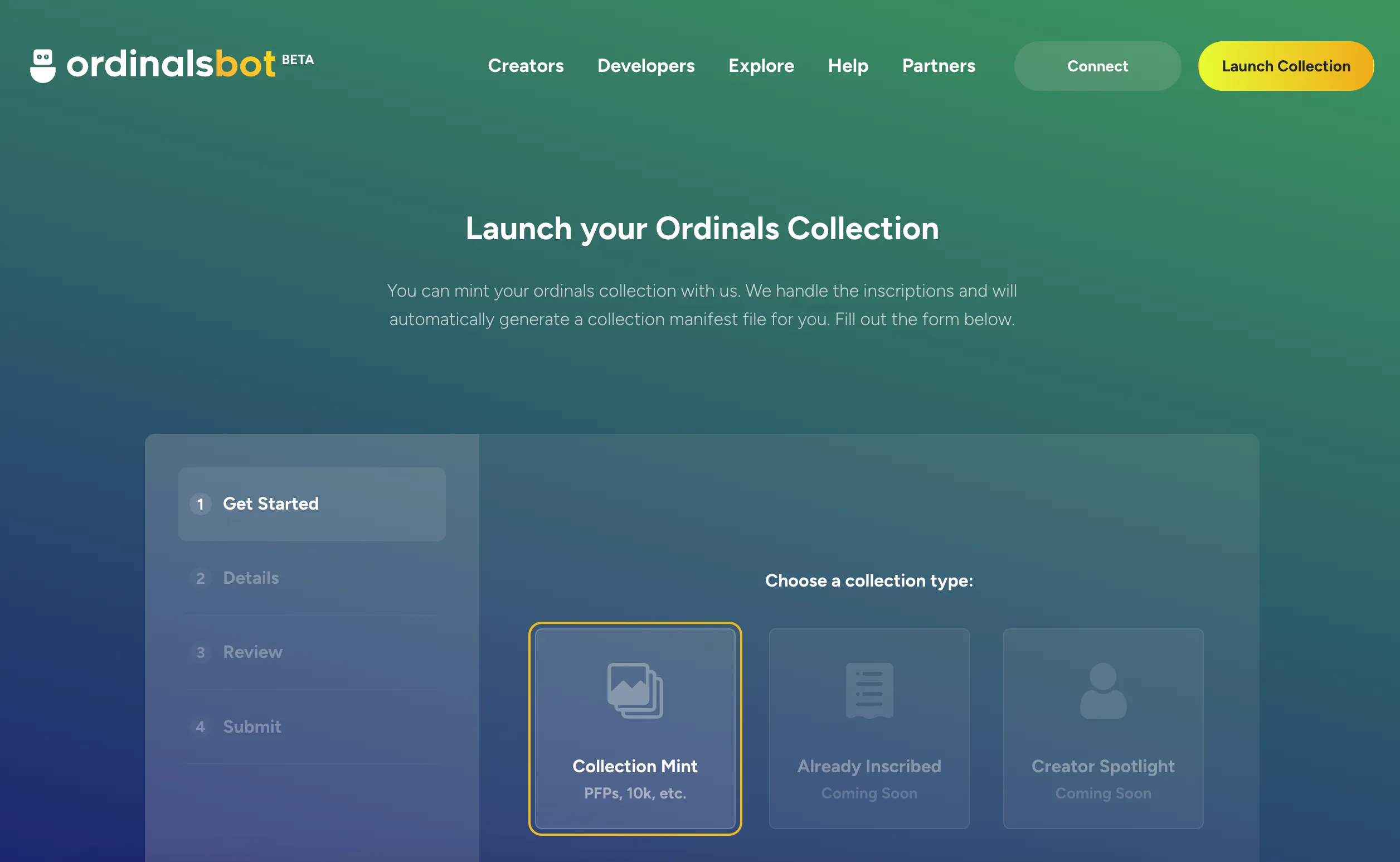Bitcoin Ordinals startup OrdinalsBot—which helped mine the largest-ever Bitcoin block and is working with Wu-Tang rapper Ghostface Killah on Ordinals—announced Tuesday that it surpassed its funding goal with a $3 million seed round led by DACM. The round brings OrdinalsBot’s total funding to over $4.5 million.
OrdinalsBot launched in February of last year after Casey Rodarmor released the Ordinals protocol on Bitcoin for putting NFT-like media assets on-chain.
Initially, inscribing an Ordinal required several complex steps, including downloading the entire history of the Bitcoin blockchain (aka a full node). OrdinalsBot aims to streamline the inscription minting process for collectors and artists.
“The round was hot from day one, which was great. We’ve had really strong traction as one of the main Ordinals builder groups,” OrdinalsBot co-founder Toby Lewis told Decrypt in an exclusive interview. “It took us a couple of weeks to get to oversubscribed status, which is pretty good in fundraising, but I think Ordinals is the topic of the moment.”
The money, OrdinalsBot said, will be used to expand on its infrastructure, including hiring and launching an Ordinals inscription marketplace.
Joining DACM in the seed funding round are Eden Block, Nural Capital, WWVentures, Lightning Ventures, Oak Grove Ventures, UTXO Management, Kenetic Capital, CMS Holdings, Kestrel0x1, Sora Ventures, London Real Ventures, Crypto Zombie, and MDX Crypto.
In addition to digital art, OrdinalsBot enables on-chain blogging and text uploads to the Bitcoin network via Scribe. It supports BRC-20 tokens (aka fungible tokens on Bitcoin), parent-child inscription hierarchies, and analytics and management through its API. For co-founder Brian Laughlin, the need for a seamless way to create Ordinals inscriptions was visible from the start.
“Basically, people were in Discord doing [over-the-counter trades],” Laughlin said. “Then we launched this product where it’s just really easy, and then boom, instant product market fit—and it was just at a time when the Bitcoin Punks were minting as well.”
Traffic picked up for OrdinalsBot, Laughlin said, after it inadvertently became known to the public on Discord.
“I think in the end, like 80% of all those Punks basically came through our platform—the server completely melted that weekend because there were just too many people,” he said, adding that it took six hours to get back online.
“Business has just been flowing, and so we’ve been able to get our hands on essentially everything that’s happened with Ordinals; we’ve had our hands in the pot in some way or form behind the scenes,” Laughlin said. “For example, we inscribed 90% of the Magic Eden drops for them last year.”
In February, ahead of the anticipated Runestone airdrop, OrdinalsBot teamed with Marathon Digital to mint the largest Inscription mined on the Bitcoin blockchain, the parent Runestone.

The OrdinalsBot interface. Image: OrdinalsBot
Taking up a hefty 3.97MB on the Bitcoin network, the Runestone was a part of the build-up to a massive airdrop that sent runestone inscriptions to 112,383 eligible wallets, and it’s free for anyone to adapt under a Creative Commons license.
The 3.97 MB project for inscription 63,140,674 used two blocks on the Bitcoin network to create the parent and child Ordinals inscriptions. A parent/child inscription refers to how the history of the Ordinal is established and traced, making a third-generation inscription the “grandchild” of the original Ordinal.
Last week, the parent inscription of the Runestone, estimated to be worth 8 BTC or $525,000 at the time, was sent by project contributor and pseudonymous NFT historian Leonidas to a wallet said to belong to Bitcoin creator Satoshi Nakamoto. It was a symbolic move, but also one that ensured that the creators could not tamper with the collection further, even if they pleased.
“It is the parent inscription of the Runestone collection, so by burning it, we sealed the collection on-chain,” Leonidas said. “There can now only ever be 112,384 Runestones.”
While the blocks mined for the Runestone totaled nearly 4 MB, according to Laughlin, that size of data is not necessary for sending the Inscription to Nakamoto.
“It’s just because of the way the Ordinals protocol works,” McLaughlin said. “These things are inscribed at the time of the transaction with the Ordinals index parsing those transactions as they go through. The thing that I’ve sent is actually only the satoshi,” he said, referring to the smallest domination of a Bitcoin (1/100,000,000 BTC).
Lewis said that OrdinalsBot aims to roll out its marketplace around May or June, ideally to take advantage of expected buzz around Runes. The upcoming Runes protocol is another take on minting fungible tokens on Bitcoin, akin to BRC-20 tokens, but with a purportedly more efficient design. It comes from Casey Rodarmor, the creator of Ordinals.
“It’s always tricky to predict with crypto markets,” said Lewis of the post-Runes window, “but we’re already seeing a huge appetite for BRC-20 fungible tokens.”
Thanks to Ordinals, inscriptions of digital art, music, text, and even video games have taken up a large portion of the Bitcoin blockchain over the past year-plus.
Last week, Wu-Tang Clan founding member Ghostface Killah announced a collection of music-themed Ordinals inscriptions in partnership with Nakamotos on BTC—creators of the NakaPepes Collection—Rare Scrilla, and OrdinalsBot to add the tracks to the Bitcoin network.
When asked what he would say to critics and Bitcoin purists who claim that Ordinals are a misuse of the network, Laughlin said that it comes with the territory.
“It’s a permissionless network, Ordinals are not doing anything that is not standard or within the protocol’s boundaries,” he said. “If you take a step back for a second and look at what [Ordinals] has brought to the space just in the last 12 months, basically in terms of excitement, people being creative on Bitcoin, and building on Bitcoin, that alone has re-energized Bitcoin to no end.”
Edited by Andrew Hayward


